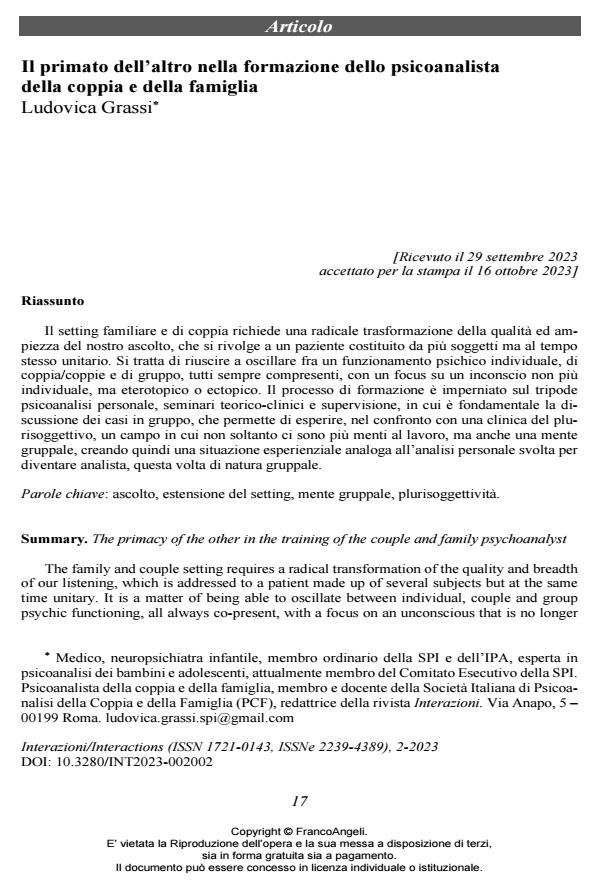The primacy of the other in the training of the couple and family psychoanalyst
Journal title INTERAZIONI
Author/s Ludovica Grassi
Publishing Year 2023 Issue 2023/2
Language Italian Pages 7 P. 17-23 File size 140 KB
DOI 10.3280/INT2023-002002
DOI is like a bar code for intellectual property: to have more infomation
click here
Below, you can see the article first page
If you want to buy this article in PDF format, you can do it, following the instructions to buy download credits

FrancoAngeli is member of Publishers International Linking Association, Inc (PILA), a not-for-profit association which run the CrossRef service enabling links to and from online scholarly content.
The family and couple setting requires a radical transformation of the quality and breadth of our listening, which is addressed to a patient made up of several subjects but at the same time unitary. It is a matter of being able to oscillate between individual, cou-ple and group psychic functioning, all always co-present, with a focus on an uncon-scious that is no longer individual, but heterotopic or ectopic. The training process is hinged on the tripod of personal psychoanalysis, theoretical-clinical seminars and super-vision, in which the clinical case discussion in group is fundamental, as it allows the stu-dent to experience, dealing with a plurisubjective clinic, a field in which there are not only several minds at work, but also a groupal mind, thus creating an experiential situa-tion analogous to the personal analysis carried out to become an analyst, but of a groupal nature.
Keywords: groupal mind, listening, pluri-subjectivity, setting extension.
Ludovica Grassi, Il primato dell’altro nella formazione dello psicoanalista della coppia e della famiglia in "INTERAZIONI" 2/2023, pp 17-23, DOI: 10.3280/INT2023-002002